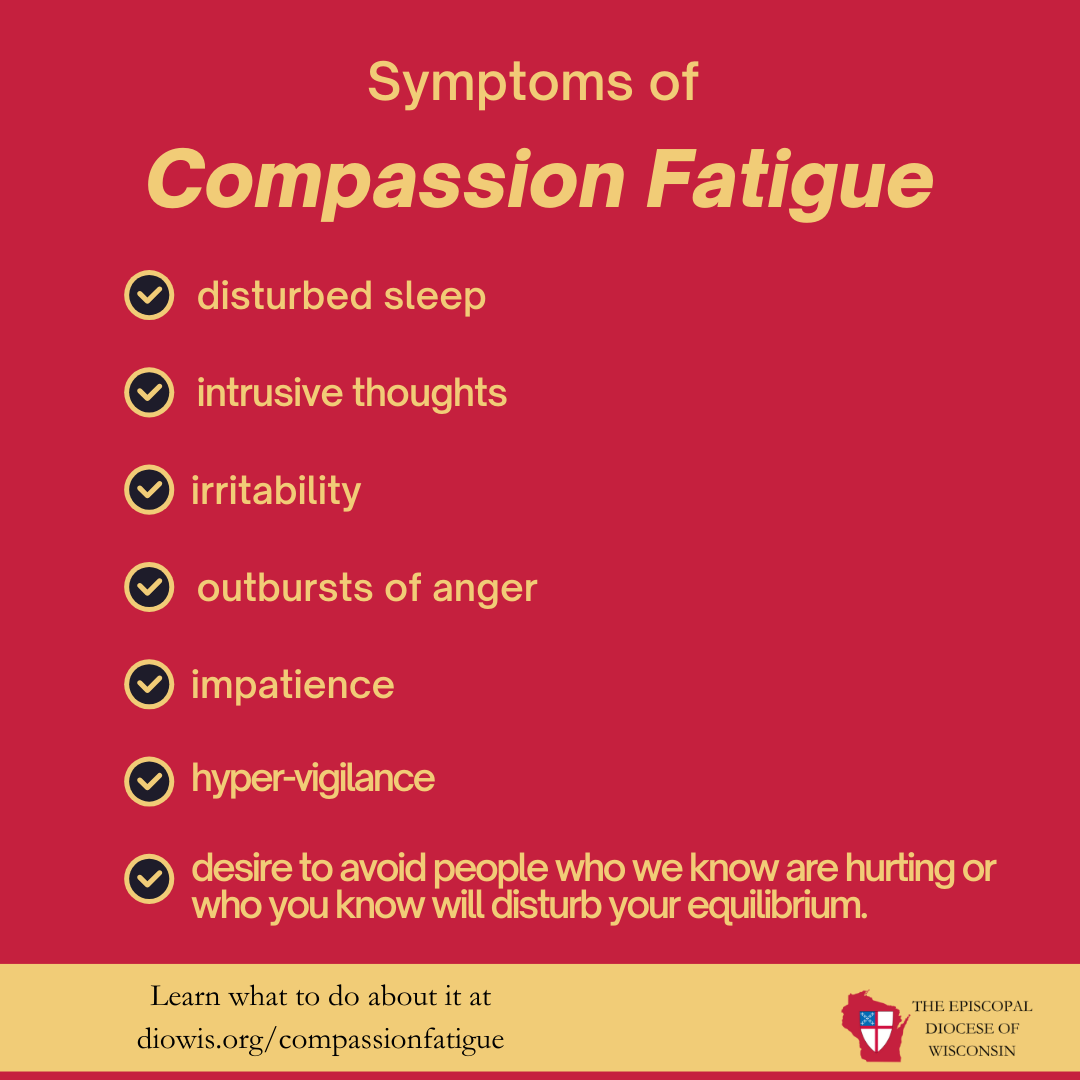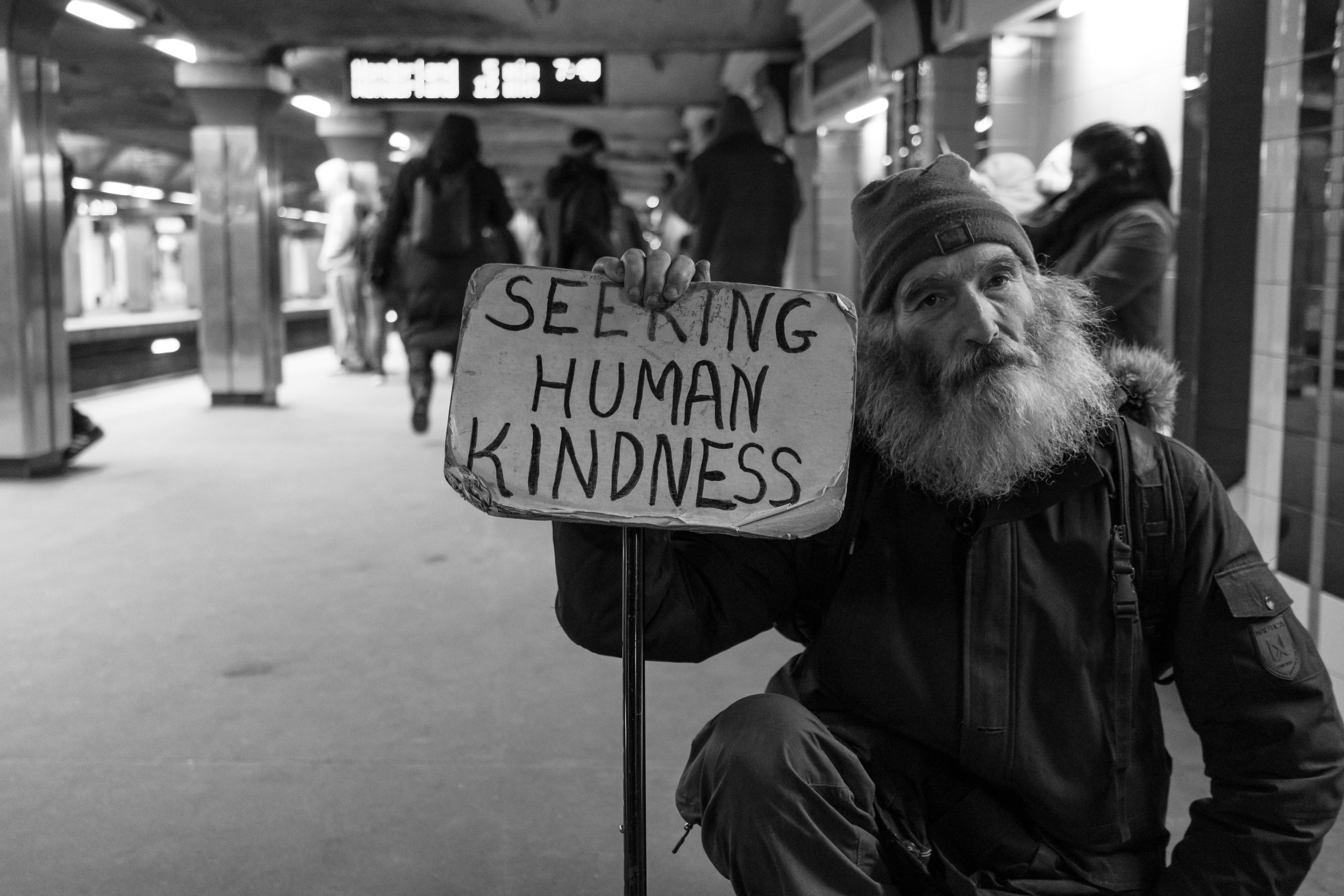Love in an Age of Compassion Fatigue
I’m tired. My heart hurts. My soul is weary. Things feel hard. A few months ago, we witnessed scenes of devastation wreaked by Hurricane Helene. Wildfires in California have devastated parts of Los Angeles, resulting in tragic death and destruction. Tragedies near and far have assaulted our sensibilities when we turn on our televisions, radios, computers, and smartphones. I have not even experienced any of these things firsthand, but my heart feels battered by it all. On top of all that, there is the venial, petty, divisive nature of our political discourse, fueled by and exacerbating deep political and cultural polarization. Many feel directly threatened by the actions of our government. Many of us are wary of honest conversations with neighbors and family. All this assaults our souls.
Add on the stories we each know of family, neighbors, friends, and fellow church members who are struggling with disease, family issues, work difficulties, etc., and it all starts to feel overwhelming. Even if you are not in the midst of such troubles yourself, knowing about them can become a cumulative burden on your spirit.
I wonder if all of this contributes to the sense I get from talking to people that many of us feel harassed by life. I wonder if it contributes to the tense polarization we see in our politics and society.
Information technology and social networking mean we are more connected than ever to the rest of the world. This means we are aware of more pain, suffering, and disappointment than ever.
It takes a toll. I wonder if our whole society isn’t experiencing a mild (or not so mild) form of Post-Traumatic Stress Disorder. Or, more accurately, perhaps, the related condition of “compassion fatigue.”
Compassion fatigue has traditionally been associated with people in the helping professions—doctors, nurses, therapists, police officers, social workers, etc. But with the increased connectivity and access to images and information, I think it has become more generalized.
The symptoms are:
disturbed sleep
intrusive thoughts (unwelcome involuntary thoughts, images, or unpleasant ideas that may become obsessions, are upsetting or distressing, and can be difficult to manage or eliminate)
irritability
outbursts of anger
impatience
hyper-vigilance (constant scanning of the environment for threats)
and a desire to avoid people who we know are hurting or who you know will disturb your equilibrium.
Sound familiar? I suspect many of us have experienced several of these symptoms. They seem pervasive in our society.
Some researchers have suggested that all of this leads to a sort of “psychic numbness” that diminishes our ability to engage those around us and the world with compassion. We are tempted to resort to a hunker-down mentality and become insular. Or we throw up our hands in resignation that nothing can change for the good. Or we surrender to the comfort of us vs. them mentality that allows us to limit our true compassion and understanding to those who are like us.
And yet, as Christians, we must resist this tendency even as we acknowledge its reality and power. We are enjoined by God to “do justice, and to love kindness, and to walk humbly with your God” (Micah 6:8). In his summary of the Law, Jesus commands us to “Love your neighbor as yourself” (Matthew 22:39). Even more challenging, he calls us to love our enemies. That is a tall order. It is a call to active compassion, a call to care, and resisting all that is contrary to compassion. How might we respond to that call while avoiding compassion fatigue?
First of all, let us admit that loving our neighbor is not always easy. Not just because some neighbors are hard to love – which is true – but because of the nature of love itself. To love someone means to make ourselves available to them – available to their hopes and joys, their need, and their fear. That also means we make ourselves vulnerable to their hurt and sorrow. That is the inevitable consequence of love. As C. S. Lewis wrote in The Four Loves:
““To love at all is to be vulnerable. Love anything, and your heart will certainly be wrung and possibly be broken. If you want to make sure of keeping it intact, you must give your heart to no one. . . It will not be broken; it will become unbreakable, impenetrable, irredeemable. The alternative to tragedy, or at least the risk of tragedy, is damnation. The only place outside Heaven where you can be perfectly safe from all the dangers and perturbations of love is Hell.””
The cumulative effect of that vulnerability is what leads to compassion fatigue.
How do we avoid becoming weary or cynical or withdrawing into our own small private worlds? How do we continue to be available and vulnerable in love toward our neighbor in an age of compassion fatigue?
I suggest it begins with the first commandment of Jesus’ summary of the Law – “Love the Lord your God with all your heart mind and soul” (Matthew 22:37). When we orient everything in our heart, mind, and life toward God, who is working all for good with those who love him, who are called according to his purpose (Romans 8:28), the hard realities in our lives and the world around us are put in perspective. We love God first of all because God is worthy of love. But, also because we are made for that love, orienting our lives toward the love at the heart of it, all is the foundation of our health and strength and our own ability to persist in love.
Thus, it is good to make it a priority to carve out time each day for plant yourself next to streams of living water as the psalmist encourages in Psalm 1. That means pray. Certainly, pray about the things that concern you. Pray God to pour mercy on your own hurts and those of your neighbor. And, more challenging, pray God’s mercy on those neighbors who are hard for you to love. But, I encourage you also to practice the prayer of silence. Be still and know that the Lord is God (Psalm 46:10). Listen for the still small voice of God. Calm and quiet your soul, like a child quieted at its mother’s breast (Psalm 131:2). Sink your heart into the heart-healing mercy of the Heart of God each day.
And don’t just pray alone. “Do not neglect to meet together, as is the habit of some, but come to worship where we reorient ourselves toward God and encourage one another” (Hebrews 10:25). In worship, we gather in solidarity with others to orient our imaginations toward the Love at the heart of everything. We encourage one another as together we are encouraged – in-heartened – in the presence of God.
Keep Sabbath. Take extended time to rest and focus your attention on God. Try this. On Sundays, do not watch the news, do not go on the internet, and rest from the worries of the world. God will continue to tend the world while you rest.
Do something restorative – read, walk in the woods, exercise, knit, make something, etc. Some researchers suggest that our capacity for compassion is finite and will become depleted if not restored. Among other things, Sabbath is a means of restoring that capacity.
The political realities facing us are distressing. Find ways to engage. Call your Senators and Representatives. Make donations. Volunteer. Do not give in to the feeling of powerlessness.
Ration your engagement with the media. Stay informed, but limit how much news and commentary you consume (or consumes you).
Acknowledge your own vulnerability. You are a limited, finite creature. You are not God. Only God, who is love, can be infinitely available and vulnerable in love. Our capacity for compassion is limited and can become drained. You cannot give all of yourself all the time to everyone and everything. And sometimes it is OK and necessary to step back for a time. Know when you’ve had enough.
Find someone to talk to about the hard stuff who will encourage you rather than reinforce the things that agitate you. “Therefore encourage one another and build one another up, just as you are doing” (1 Thessalonians 5:11). “Bear one another’s burdens and thus fulfill the law of Christ” (Galatians 6:1).
Don’t dwell obsessively on the negative. Don’t allow yourself to get in a rut of rehearsing all that is bad in the world. “Finally, brothers and sisters, whatever is true, whatever is noble, whatever is right, whatever is pure, whatever is lovely, whatever is admirable—if anything is excellent or praiseworthy—think about such things.“ (Philippians 4:8).
Remember that God bears it all and bears it with you. You are not alone. Jesus said, “Come to me, all who labor and are heavy laden, and I will give you rest. Take my yoke upon you, and learn from me; for I am gentle and lowly in heart, and you will find rest for your souls. For my yoke is easy, and my burden is light.” (Matthew 11:28-30) ; The burden is lighter when we allow God to bear it with us.
Do what you can and trust the rest to God. Focus your care. Again, this is part of accepting our creatureliness. We cannot do everything everywhere. But we can do something. So, it helps to decide what we can do and focus on that. Are their particular people or situations that are on your heart? Address those. Perhaps there is one cause that animates your spirit. Contribute to that and get involved. You do not need to take on all the world’s woes and challenges. But, doing something allows us to trust God to raise up others to care for other things. Doing something somewhere also frees us from despairing or feeling helpless. This is true locally and personally as well. If we are careful not to take on more than we can manage, we can manage, with God’s help, what we are called to take on. In doing so, we can still remain open to people and situations that aren’t already on our radar while discerning what we are called to do and letting go of the rest.
End each day naming the good and giving thanks – in your own life and in the world. Give thanks to God for at least three things. Notice simple pleasures with gratitude. “Give thanks in all circumstances; for this is the will of God in Christ Jesus for you.” (1 Thessalonians 5:18)
Loving our neighbor, the stranger, and our enemy are hard in the best of times. It is a difficult and perilous thing as we make ourselves available and vulnerable to caring in a world full of tragedy, disappointment, and outrage. But, by the grace of Christ’s Spirit working in us and through us, we can be refreshed, renewed, and empowered to love even in an age of compassion fatigue.






